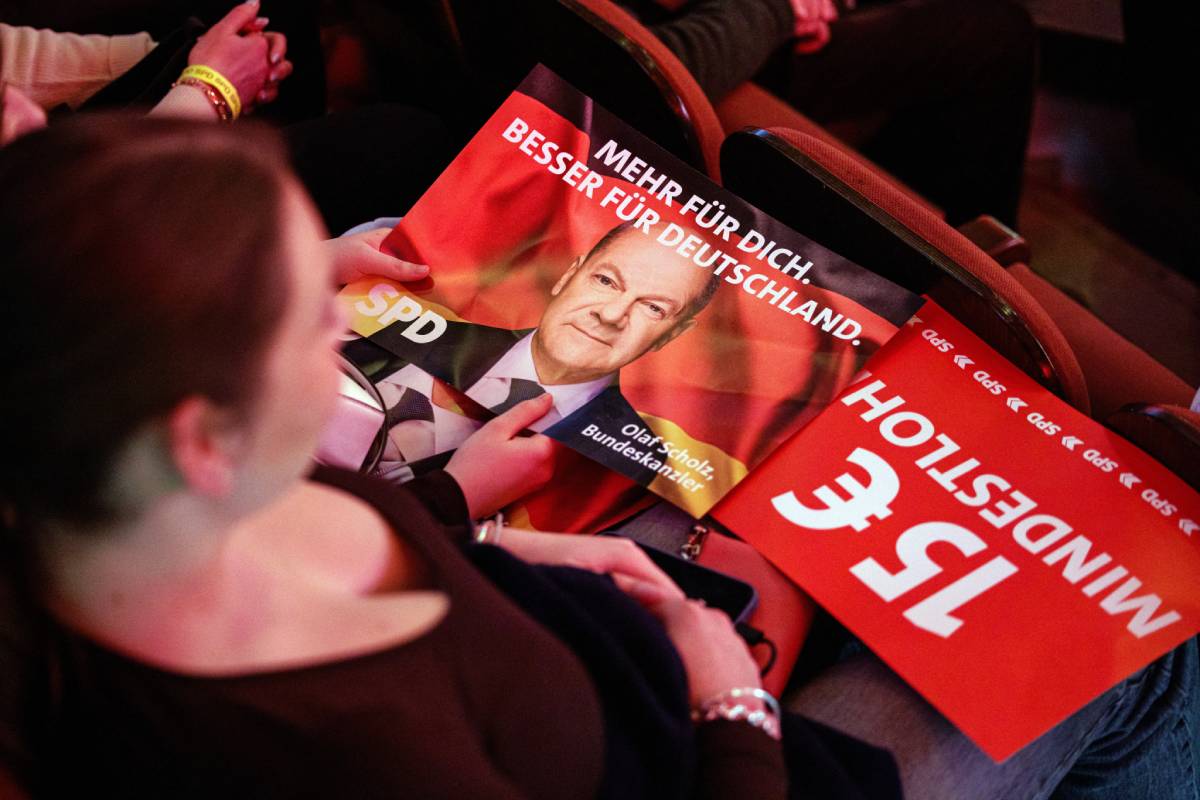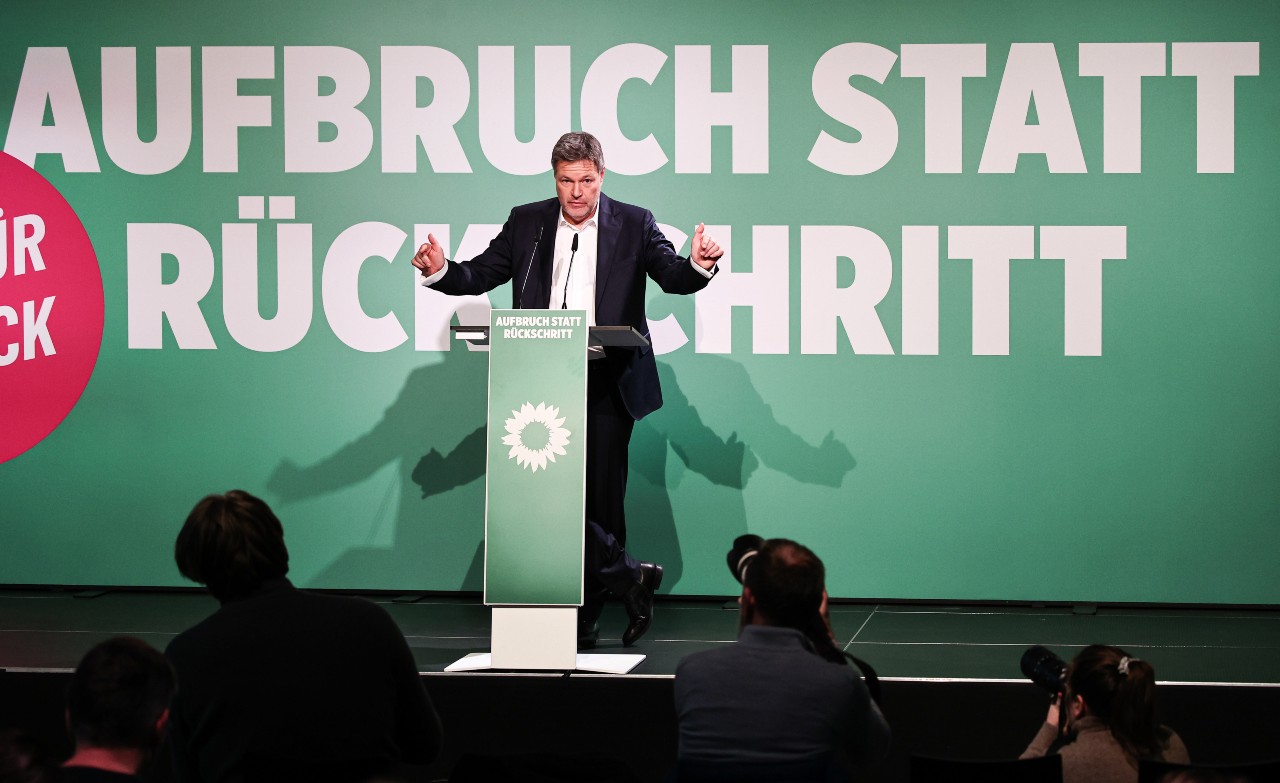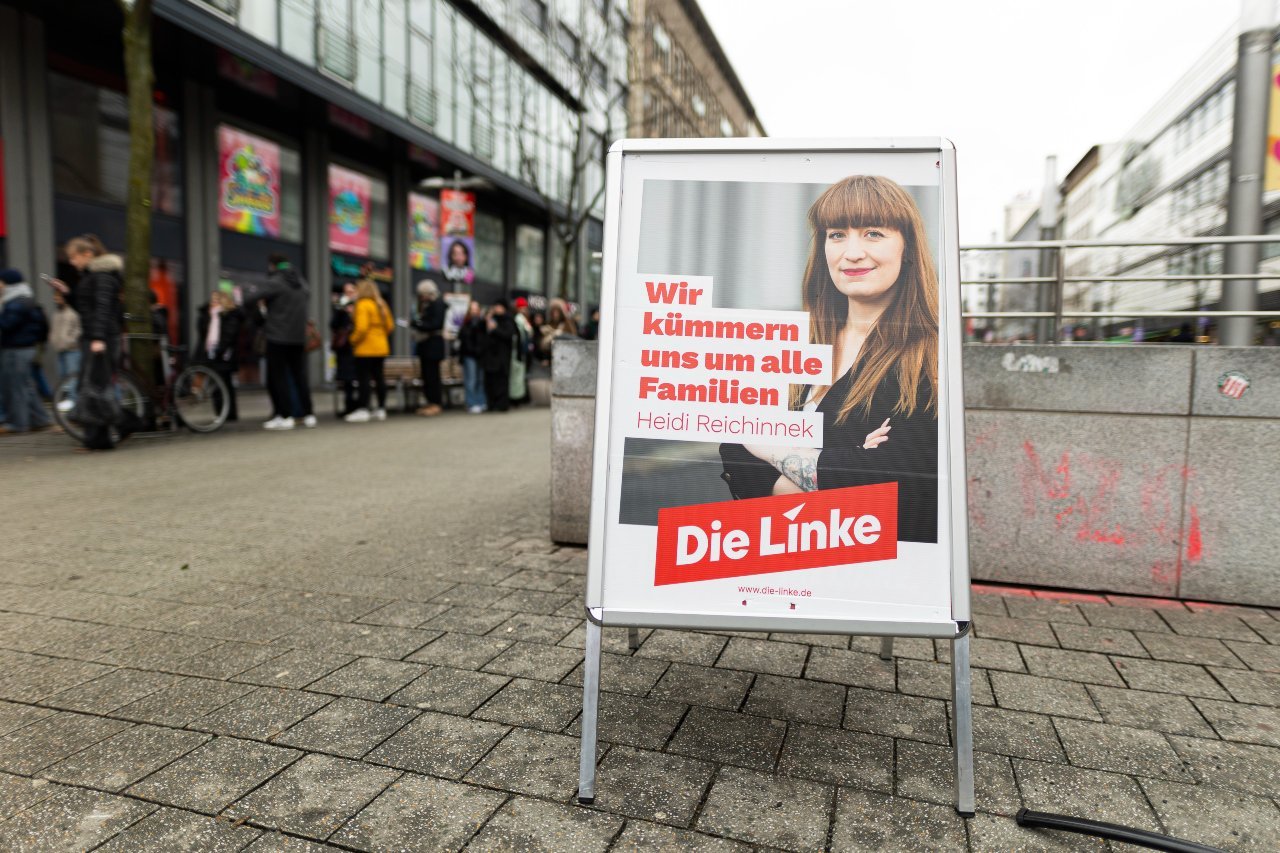Though it may have been sidelined amid recent debates over migration, the high cost of living is a major issue for voters in Germany.
Households are paying more than ever for their groceries, rents and energy bills, and social contributions have recently soared to a 20-year high.
As the country prepares to head to the polls on Sunday February 23rd, it looks likely that a new coalition government led by the centre-right Christian Democratic Union (CDU) and the Christian Social Union (CSU) is set to take power. This could mean a massive shake-up of Germany's tax policies, as well as its social system.
To guide you through what to expect, here's a rundown of some of the major parties' policies that could affect your finances.
READ ALSO: How German parties want to end soaring social contributions
CDU/CSU
Currently, the CDU/CSU are leading the polls at around 30 percent and look likely to emerge as the largest party in the elections.
When it comes to reducing the cost of living, the centre-right parties have primarily set their sights on tax cuts. In their manifesto, they mention adjusting the tax brackets to relieve lower- and middle-income earners.
So far, however, details have been thin on the ground, and an analysis by Campact suggests that the Union's proposed tax reforms would offer much more benefit to the highest earners. According to Campact, people earning more than €200,000 per year could benefit to the tune of around €13,500, while those on €20-30k per year would save just €63.
Along with income taxes, the CDU and CSU have committed to reducing the burden of social contributions. These would be cut to under 40 percent of income, the parties say, which would mean employees pay 20 percent or less of their income for things like pension, health and care insurance.

To put more in voters' pockets, the Union also wants to slash taxes on electricity, reduce gastronomy VAT, and make overtime hours tax-free for full-time workers. Working people should also be able to write off more expenses from their tax return with increases in the childcare allowance and commuters' flat rate, for example.
READ ALSO: What should foreigners in Germany expect from a CDU-led government?
Pension-age people who continue to work would also be able to earn up to €2,000 per month tax-free.
Those receiving welfare benefits such as Bürgergeld, or citizens' income, could have a tougher time under the CDU and CSU. Recently, chancellor candidate Friedrich Merz has pledged a no-nonsense reform of the long term unemployment benefit, involving tough sanctions for those who are deemed unwilling to work.
Social Democrats (SPD)
Olaf Scholz's SPD is currently on around 16 percent in the polls, and are widely considered the mostly likely junior coalition partner for the CDU and CSU.
In its manifesto, the centre-left party hones in on social equality, pledging to relieve 95 percent of earners with "targeted relief" while the richest pay more.
Assets and wealth would be more highly and consistently taxed, and the top rate of tax would go up from 42 to 45 percent on incomes above €93,000 per year. For the "super-rich" earning around €278,000 or more per year, the tax rate would rise from 45 to 47 percent.
Meanwhile, both part-timers and full-timers would get tax breaks for taking on extra hours at work.

Following on from their flagship policy to hike the minimum wage up to €12 per hour, the SPD is now eyeing a further increase to €15 per hour for the lowest earners. In addition, the party wants to make shopping at the supermarket more affordable by cutting VAT on groceries to just five percent.
The popular Deutschlandticket travel pass would also be kept in place at the current price of €58 per month, offering affordable travel for commuters.
READ ALSO: Will Germany's 'Deutschlandticket' survive after the elections?
In order to lower the cost of social contributions like pensions and healthcare, all employees would have to pay into the statutory funds - meaning the wealthy would no longer be able to opt out. The Bürgergeld unemployment benefit would be kept in place, with more funding for jobcentres to support claimants in finding a job.
Greens
Led by chancellor candidate Robert Habeck, the Green Party has been scoring around 13 percent in recent polls. While this wouldn't be enough to enter into a coalition with the CDU/CSU, a small increase in support for either party would once again make this a possibility.
For the Greens, social equality and the cost of living feature heavily in the manifesto. The eco-friendly party pledges to make the energy transition affordable through the introduction of Klimageld, or climate money, which would see income from the CO2 tax paid back to households on a monthly basis.
In addition, the Greens want to cut taxes on electricity and reduce the price of the Deutschlandticket to its original €49 per month.

Similar to the SPD, a €15 minimum wage would be introduced for low earners, and the Greens would also ensure all employees in Germany pay into the social contributions funds to cut costs for lower and middle-income households. Bürgergeld would be kept in place and expanded.
On taxation, the party also wants a fairer system that offers more relief for lower earners. This would be done through a more progressive tax rate and incorporating the so-called "solidarity tax" for rebuilding the former GDR states into income tax more generally.
READ ALSO: Six articles to help you understand the German federal election
Meanwhile, high earners would be hit by higher taxes on their wealth, income and inheritance.
To ensure most employees enjoy more take-home pay, the Greens also want to increase the amount people can earn before paying tax (in German: the Grundfreibeitrag) - though there are no details about how much this would go up by. Additionally, workers would be able to write off €1,500 in work-related expenses per year without having to submit proof to the tax office.
Alternative for Germany (AfD)
Though all mainstream parties have a 'firewall' policy against working with the far right, the AfD currently have the support of around 20 percent - or one in five - voters in Germany. So, though they are highly unlikely to enter government, here's a quick look at some of their tax and financial policies.
Like the CDU/CSU, the AfD focus most of their attention on tax reductions when it comes to cutting the cost of living. Most notably, the party wants to reduce VAT to seven percent across the board and replace progressive taxation with broader tax brackets, which the party claims would make things simpler and more transparent for taxpayers.
On the cost of living, the party pledges to cut VAT on eating out and for childcare products. They want to make energy and fuel more affordable by getting rid of climate measures such as the CO2 tax.
Meanwhile, the traffic-light coalition's Bürgergeld unemployment benefit would be scrapped and jobseekers would need to do community work in order to receive their benefits.
What about other parties?
Hovering in the single digits in the latest polls, a number of smaller parties could also make it into the Bundestag after the elections - and potentially into a future coalition.
With that in mind, here's what those parties are promising to do for voters' finances.
As you might imagine, the leftwing Die Linke party put affordable living and social equality front and centre in their election campaign, pledging to keep prices low and ensure that every household can get by. VAT would be scrapped on everyday food and drink items, and social tariffs for energy would be introduced.
A new pricing authority would clamp down on unnecessary price hikes and price gouging.

On taxation, the tax-free income threshold would soar to €16,800 per year under the party's plans, while those earning over €85,000 per year would see their tax rate rise to 53 percent. This would go up to 60 percent for those earning over €250,000 per year.
READ ALSO: A guide to Germany's political parties and their colours
For the leftwing-conservative Bundnis Sahra Wagenknecht (BSW) - currently on around five percent in the polls - the cost of living and fair taxation are also major topics. Like Die Linke, the newly formed party want to drastically increase the tax-free income, relieve those who earn up to €7,500 per month and introduce a wealth tax for the super-rich.
The party also wants to introduce a basic pension of €2,000 per month and increase pensions by €120 per month immediately.
The liberal Free Democrats (FDP), who are currently on around four percent in the polls, are eyeing tax cuts for both high and low earners - though critics say they benefit high earners the most. The top rate of tax of 42 percent would only apply to incomes over €96,600, and the solidarity tax - which is only paid by higher earners - would be scrapped entirely.
The basic tax-free amount would also be raised by at least €1,000 to relieve lower-income households.

Comments